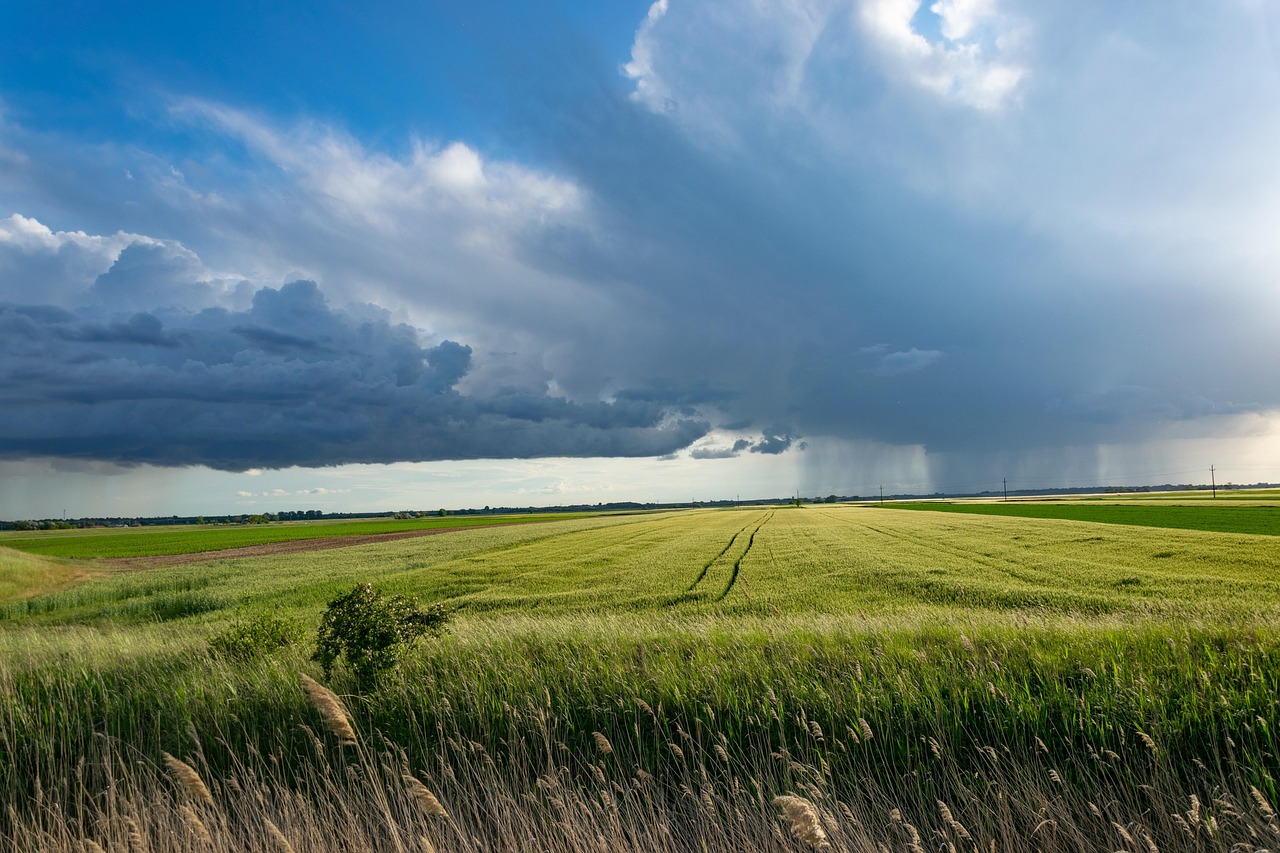Share This Page:
Scripture Reading: Psalm 9:10 — “Those who know Your name trust in You, for You, Lord, have never forsaken those who seek You.”
Knowing God Through His Names
In Scripture, names carry deep meaning — they reveal identity, purpose, and character. God’s names are not merely titles; they are revelations of who He is and how He relates to His people. When God reveals His name, He reveals Himself — His nature, His promises, and His presence. Each name invites us to know Him more personally and to trust Him more deeply.
Throughout the Bible, God introduces Himself by many names, each expressing a facet of His divine nature. Together, they form a tapestry of truth that reveals His holiness, love, and faithfulness. To know His names is to know His heart.
The Covenant Name of God
1. Yahweh (YHWH) — The LORD
Scripture: Exodus 3:14–15 — “God said to Moses, ‘I AM WHO I AM. This is what you are to say to the Israelites: I AM has sent me to you.’”
Meaning: Yahweh is God’s personal covenant name, derived from the Hebrew verb *to be*. It reveals Him as self-existent, eternal, and unchanging — the One who was, is, and always will be. The Jews considered this name so holy that they would not pronounce it aloud, often substituting “Adonai” (Lord) instead.
Reflection: When God calls Himself “I AM,” He reminds us that He is the source of all existence and the sustainer of all life. He is ever-present, faithful, and constant amid our changing world. To know Yahweh is to rest in the assurance that He never ceases to be who He is.
The Compound Names of Yahweh
2. Yahweh Jireh — The Lord Will Provide
Scripture: Genesis 22:14 — “So Abraham called that place ‘The Lord Will Provide.’ And to this day it is said, ‘On the mountain of the Lord it will be provided.’”
Meaning: This name was revealed when God provided a ram in place of Isaac. It declares God as our provider — not only of material needs but of spiritual salvation through Jesus Christ, the Lamb of God.
Reflection: God’s provision is perfect in timing and purpose. He sees our needs before we do and meets them according to His wisdom. Yahweh Jireh reminds us that in every circumstance, His grace is sufficient.
3. Yahweh Rapha — The Lord Who Heals
Scripture: Exodus 15:26 — “I am the Lord, who heals you.”
Meaning: This name reveals God as the Healer — of body, mind, and spirit. His healing encompasses restoration, forgiveness, and renewal. Jesus embodied Yahweh Rapha in His ministry of compassion and power.
Reflection: Healing is part of God’s nature. Whether He heals instantly, progressively, or eternally, His desire is always to restore us into wholeness and peace with Him.
4. Yahweh Nissi — The Lord Is My Banner
Scripture: Exodus 17:15 — “Moses built an altar and called it The Lord is my Banner.”
Meaning: In the battle against Amalek, Moses declared the Lord as Israel’s banner — the symbol of victory and identity. Under His banner, His people find unity, protection, and triumph.
Reflection: Yahweh Nissi reminds us that God fights our battles and that victory belongs to Him. When we lift our hands in prayer and faith, we are declaring His authority over every situation.
5. Yahweh Shalom — The Lord Is Peace
Scripture: Judges 6:24 — “So Gideon built an altar to the Lord there and called it The Lord Is Peace.”
Meaning: God revealed Himself to Gideon as peace in the midst of fear and turmoil. True peace is not the absence of trouble but the presence of God Himself.
Reflection: Yahweh Shalom reminds us that God’s peace calms anxious hearts and guards our minds. When chaos surrounds us, His presence restores stillness and confidence.
6. Yahweh Rohi — The Lord Is My Shepherd
Scripture: Psalm 23:1 — “The Lord is my shepherd, I lack nothing.”
Meaning: This name portrays God as a gentle and faithful shepherd who guides, provides, and protects His flock. It points to Jesus, the Good Shepherd, who lays down His life for His sheep (John 10:11).
Reflection: Yahweh Rohi invites us to rest in God’s leadership. When we follow His voice, we find green pastures for our souls and the comfort of His constant care.
7. Yahweh Tsidkenu — The Lord Our Righteousness
Scripture: Jeremiah 23:6 — “This is the name by which He will be called: The Lord Our Righteous Savior.”
Meaning: God alone is righteous, yet through Christ, His righteousness is given to us by faith. We stand justified before Him because of what Jesus accomplished on the cross.
Reflection: Yahweh Tsidkenu reminds us that our righteousness is not earned but received. It calls us to walk in humble gratitude, clothed in the perfection of Christ.
8. Yahweh Shammah — The Lord Is There
Scripture: Ezekiel 48:35 — “And the name of the city from that time on will be: The Lord is There.”
Meaning: This name was given in a vision of the restored Jerusalem, symbolizing God’s abiding presence among His people. It points forward to the promise of Emmanuel — “God with us.”
Reflection: Yahweh Shammah assures us that God never abandons His children. His presence fills our lives, our homes, and our future hope of eternity with Him.
The El Names of God
9. El Shaddai — God Almighty
Scripture: Genesis 17:1 — “I am God Almighty; walk before Me faithfully and be blameless.”
Meaning: “El Shaddai” emphasizes God’s all-sufficiency and strength. He is the God who is more than enough — able to do exceedingly above all we ask or imagine.
Reflection: When we face lack or limitation, El Shaddai reminds us that God’s resources are infinite. He is both powerful and nurturing, meeting our needs with tender might.
10. El Elyon — God Most High
Scripture: Psalm 57:2 — “I cry out to God Most High, to God who fulfills His purpose for me.”
Meaning: El Elyon speaks of God’s supremacy over all creation. He is exalted above every ruler, authority, and power — the sovereign Lord of heaven and earth.
Reflection: When life feels out of control, El Elyon reminds us that God reigns. His throne is unshakable, and His purposes will prevail.
11. El Roi — The God Who Sees Me
Scripture: Genesis 16:13 — “She gave this name to the Lord who spoke to her: ‘You are the God who sees me.’”
Meaning: Spoken by Hagar in the wilderness, this name reveals God’s tender awareness of every person’s pain. He is not distant — He sees, He knows, and He cares.
Reflection: El Roi comforts those who feel forgotten or unseen. His eyes are on every tear and every heart. In His sight, we are fully known and deeply loved.
12. El Olam — The Everlasting God
Scripture: Isaiah 40:28 — “The Lord is the everlasting God, the Creator of the ends of the earth.”
Meaning: El Olam declares God’s eternal nature — without beginning or end. His purposes extend beyond time and human understanding.
Reflection: When life changes, El Olam anchors us. His love and promises endure forever. The same God who was faithful to generations past remains faithful today.
The Relational Names of God
13. Adonai — Lord, Master
Scripture: Psalm 16:2 — “I say to the Lord, ‘You are my Lord; apart from You I have no good thing.’”
Meaning: Adonai emphasizes God’s authority and lordship. It acknowledges Him as Master — the rightful ruler of all creation and the guide of our lives.
Reflection: Calling God “Adonai” is an act of surrender. It is saying, “You lead, and I will follow.” True freedom is found under His lordship, where obedience and love meet.
14. Abba — Father
Scripture: Romans 8:15 — “The Spirit you received brought about your adoption to sonship. And by Him we cry, ‘Abba, Father.’”
Meaning: Abba is the intimate Aramaic word for “Father” — like saying “Daddy.” It expresses closeness, affection, and trust. Through Christ, we are adopted into God’s family and can approach Him with confidence and love.
Reflection: Abba reminds us that God is not a distant deity but a loving Father who delights in His children. In prayer, we draw near not as servants pleading for favor but as sons and daughters resting in love.
Responding to His Names
Each name of God reveals a different facet of His infinite nature, yet together they point to one truth: God is both transcendent and near — infinitely great and intimately personal. To know His names is to walk in greater trust and worship.
When we call on Yahweh Jireh, we rest in His provision.
When we whisper Yahweh Shalom, we receive His peace.
When we cry out to El Roi, we remember that He sees us.
And when we say Abba, we remember that we are loved beyond measure.
God’s names are not distant theology; they are invitations to relationship. As we pray, worship, and live under His name, we experience the depth of His character and the beauty of His presence. Truly, His name is a strong tower — and those who run to it are safe (Proverbs 18:10).
Not yet saved? Receive the gift of salvation today!
🌿 Keep Growing in God’s Word
Nurture your spiritual life with powerful books that bring God’s truth to light. We’ve selected the best Christian reads to encourage, equip, and inspire you every day.
Discover Our Faith-Filled Book ListAs an Amazon Associate we earn from qualifying purchases and this page includes affiliate links.
Encouraged by this message? Please share it with friends and family so they can be too.
















